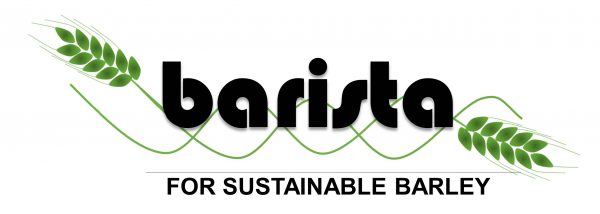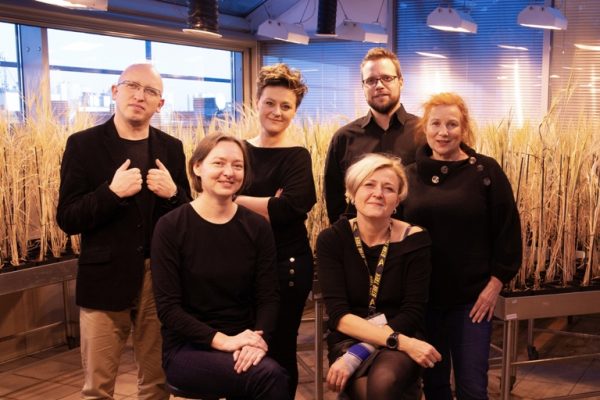Water scarcity, increased carbon dioxide level and occurrence of pathogens – these are some examples of stress factors affecting the cultivation of barley, the fourth grain in the world in terms of cultivation area. An international team of researchers took joint action under BARISTA project, intended to develop tools that enable to optimise the cultivation of this plant, particularly in the context of climate changes. The Polish project leader is Dr. Agata Daszkowska-Golec, Professor of the University of Silesia from the Faculty of Natural Sciences at the University of Silesia.
The project entitled “Advanced tools for breeding BARley for Intensive and SusTainable Agriculture under climate change scenarios (BARISTA)” is carried out by scientists representing eight countries: Poland, Italy (leader), Finland, Spain, Germany, Denmark, Great Britain and Estonia. Plant geneticists and physiologists specialised in research on barley have combined their forces to support breeders facing the effects of climate changes.
‘One of the project advantages is the fact that the partners come from different parts of Europe. It is valuable because of the research on agronomic features of naturally grown barley varieties in different climate conditions, chosen by the consortium members’, says Dr. Agata Daszkowska-Golec.
The project partners are obliged to establish cooperation with local breeding companies which either share their knowledge and experience, or operate as subcontractors. In the case of the Polish team, DANKO Hodowla Roślin, one of the biggest Polish grain producers, was selected for cooperation.
The breeding station will be responsible for developing new genotypes of spring barley and testing selected sixty varieties, indicated by all research partners at an early stage of project. Similar tasks will be carried out in Italy, Germany, Finland, Estonia and Denmark.
‘These are varieties recommended by breeders, which have the potential to respond well to various climate change effects’, says the genetician from the University of Silesia. Data obtained from these experiments will both constitute a description of agronomic features and provide detailed information after further genotyping, based on high-throughput genome sequencing. They will serve as input for further analyses conducted by scientists from Italy and Germany.
The teams undertook the challenge of modelling climate changes, and the data obtained thanks to watching the growth of barley plants in natural conditions in various parts of Europe will be the added value, taking into consideration any genotype changes. The additional variable included in this task will be the specific character of the geographical habitat. Based on this, the scientists will develop scenarios for barley cultivation, depending on many different variables, as well as create an ideotype of barley characterised by a set of features that enable cultivation in the face of climate changes.
Moreover, the scientists are conducting research related to other abiotic factors that significantly affect the reduction of barley yield.
‘We are mainly interested in three stress factors. We are planning to examine the tolerance of selected lines of barley in laboratory and natural conditions to draught, increased carbon dioxide level and activity of selected grain pathogens’, summarises Dr. Agata Daszkowska-Golec.
The research carried out by the Polish team of geneticians received funding in the amount of PLN 834,260 from the National Centre for Researcch and Development as part of the first edition of ERA-NET Co-Fund SusCrop Programme, which is a sub-measure of Horizon 2020 programme. The total project budget is EUR 2,319,000. Detailed information is available at: https://www.suscrop.eu/projects-first-call/barista.
Małgorzata Kłoskowicz | Press Section
Contact
- Dr. Agata Daszkowska-Golec, Professor of the University of Silesia in Katowice, Faculty of Natural Sciences: agata.daszkowska@us.edu.pl







